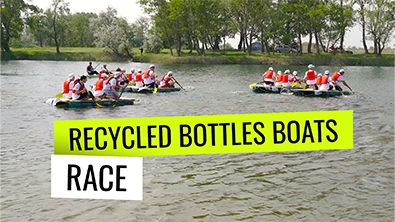Parents need to be positive role models in their use of technology and the online environment
Digital parenting is an ongoing and adaptive process that requires understanding and adapting to new online technologies and challenges. It is essential that parents are involved, informed and work together with children to ensure safe and beneficial use of the digital environment.

The attitude towards digital parenting has changed in recent years thanks to the new generations. Those generations forced to grow up in a world where only first place matters (see professional online gaming competitions where the first place team gets a fabulous amount and everyone else a token participation diploma) and where fakenews is maintained exactly by the book those who condemn him.
Parents tend to limit access to technology without offering children an attractive alternative such as creative games with other children or household activities with other family members. Instead of becoming models of technology use, providing examples of curiosity and adaptation, parents tend to associate technology with punishment for not completing certain tasks.
Digital parenting refers to the approach and responsible management of the education and supervision of children in the digital age. It involves applying appropriate strategies and practices to protect and guide children in their use of technology and the Internet.
Digital parenting focuses on issues such as online safety, digital education, monitoring and controlling access to online content, managing time spent in the digital environment, protecting privacy and promoting responsible and ethical behavior online.
Digital parenting involves a number of aspects, including:
- Education and communication: Parents should educate children about the importance of online security, privacy of personal data and appropriate behavior in the digital environment. Open and regular communication between parents and children is essential to understand and respond appropriately to the specific challenges and concerns of the online environment.
- Set rules and limits: It is important to set clear rules regarding technology and Internet use based on the age and maturity level of children. These rules may include limits on time spent online, access to certain types of content, and use of devices in certain situations, such as when sleeping or eating.
- Monitoring and supervision: Parents should be active in monitoring their children’s online activities. This may include checking friend lists and social media accounts, monitoring messages and content consumed, and using parental control software or apps to ensure safe and appropriate internet browsing.
- Promoting appropriate online behavior: Parents should teach children to behave responsibly and respectfully online, avoid harassment or bullying online, and take care of their own digital reputation. This involves developing critical thinking and discernment skills in relation to online information and promoting digital ethics.
- Personal Example: Parents should be positive role models in their use of technology and the online environment. Their behavior and attitude towards technology will influence their children’s behavior and attitude.
- Digital Literacy: Digital parenting also involves teaching children about digital literacy. This includes developing online browsing skills, evaluating and analyzing content, protecting personal information and recognizing manipulation and fake news. Parents can play an active role in providing their children with information and resources to develop these skills.
- Communication and dialogue: Digital parenting involves open and honest communication between parents and children about their experiences and concerns online. Parents should be available to answer children’s questions and concerns and support them in managing difficult or problematic situations that may arise online.
Digital parenting is no longer about how many minutes each week you leave your child in front of a monitor. It is no longer about what the child does in front of the monitor. Today’s digital parenting is about supporting children to adapt to an AI-based world.
A world where the “parental example” is decisive. And by example I don’t mean the ease with which a clip is edited and uploaded to YouTube. I am referring to the transmission of values that have nothing to do with technology and the online environment. Values that an AI will never be able to fully understand.
Today’s digital parenting is no longer about fostering access to technological resources. Today’s digital parenting is about providing a reliable model that harmoniously blends technology with humanity. A model that had the curiosity and courage to use new technological tools to become more efficient. A model that kept the old set of values based on humanity. On direct communication with people. On trust and vulnerability. On happiness and love.
In the absence of models, children risk adopting external models. Excessively promoted models in the online environment, on social media or in game networks. Models that may be fake. extremist, harmful or toxic.
Social isolation among children and adolescents can have multiple causes and can be influenced by several factors, including the presence of negative external role models on social media and video games, as you mentioned earlier. Social isolation can have significant consequences for children’s emotional and social development, and intervention and support from parents and adults is essential to help children overcome this situation. Before restricting access to online games, it is important to check to what extent they are used for socializing with other people.
Parents play an essential role in guiding children towards responsible and healthy use of technology. Children need role models to convey the importance of access to technology in preparation for the artificial intelligence (AI) world and the importance of quality offline social interaction.






















